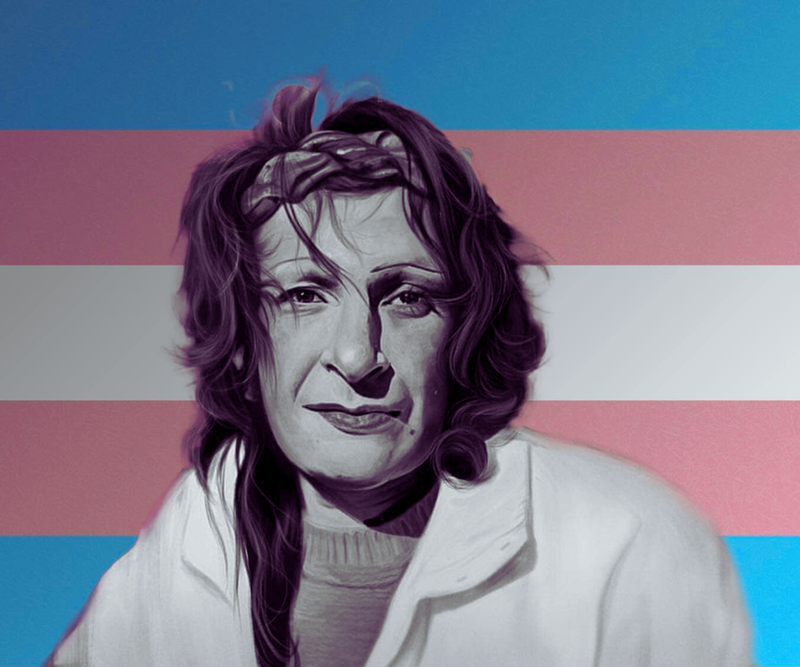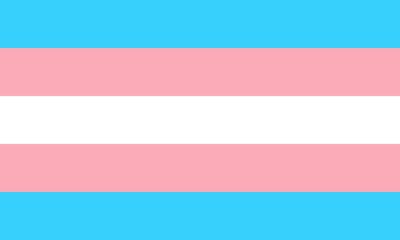51 years ago, the crowds would not listen to a transgender sex worker by the name of Sylvia Rivera. Through the 70s, one speech and one protest would go on to impose many necessary conversations.
Y’all Better Quiet Down
The powerful and raw words of pioneering LGBTQ activist and Latinx icon
Sylvia Rivera’s 1973 “Y’all Better Quiet Down” speech was a testament not only to the fight she was leading through the Street Transvestite Action Revolutionaries (STAR), an organization that she co-founded with her fellow activist and close friend Marsha P. Johnson three years before, but also to how she was often met with pushback from part of the LGBTQ+ community like many other transgender and gender-fluid individuals who were discouraged from taking part in advocating actions—you can actually hear the booing she received from the crowd during her speech, which took place at a New York City gay pride parade.
Rivera was born as Ray in 1951 in the Bronx to Puerto Rican and Venezuelan parents, was orphaned by the age of three, identified as a drag queen by 1962 (when she had to flee from her abusive grandmother), and finally found her place within New York’s drag community. Although her organization, STAR, was short-lived, it made a meaningful effort to provide food, lodging, and clothes to homeless transgender people, and it paved the way for the success of later organizations like the Queens Liberation Front, created in 1970 by activist Lee Brewster.
The incidents surrounding her 1973 speech ended with Rivera retreating from activism for many years, to the point where she didn’t appear at LGBTQ+ rights events. However, the long and winding path for change was already in motion: the Sexual Orientation Non-Discrimination Act (SONDA), for which she fought during the 70s, was finally passed in 2002, adding “sexual orientation” to the list of characteristics specifically protected against discrimination “in employment, housing, public accommodations, education, credit, and the exercise of civil rights.”
A Sex Worker Addresses the Crowd
In the decades before the passing of that law, and even afterward, Rivera’s speech gained prominence as a wake-up call about issues and communities that can often be overlooked or even ignored when advocating for civil rights and liberties, or when pointing out systems or acts of discrimination and persecution. Also, it became proof of how many improvements or causes were born from critical moments of resistance: the LGBTQ+ rights advocacy with which Rivera was debating was the result, among other factors, of the Stonewall riots of 1969. Rivera’s alleged involvement in the riots was widely discussed in history (this is not the case with Marla P. Johnson, whose presence in the riots is more strongly credited).
Sex workers were an important (but ignored) part of Stonewall. With STAR, Rivera supported many drag queens who were forced into pursuing prostitution as a means of living. Since she herself was also initiated into prostitution as a child (and while still being a boy), she also worried about kids who may be in a similar situation. But, as historian Melinda Chateauvert noted, in 1973 “Rivera had to fight to speak at the gay pride rally celebrating Stonewall because the crowd didn’t want to hear from a transgender sex worker.”
Sex workers would stand up for themselves soon, but this time the defining event would happen an ocean away.
The Church and Sex Workers
It all started in Lyon, France, on June 2nd, 1975.
Around 100 sex workers occupied the Saint-Nizier Church hanging a banner that read “Our children do not want their mothers to go to jail”, challenging the police to arrest anybody that could be identified as a sex worker, and even bringing their children to the demonstration, which brought attention to the idea that sex workers could not be distinguished from everyday people. In this action, they were supported by a very significant institution—the French Catholic Church, with Father Louis Blanc, the priest in charge of the occupied church, going as far as to declare, “It is, after all, Mary Magdalene to whom Jesus appeared.”
The occupation was a reaction to the abolitionist position that France had started taking since 1960, when it ratified the UN Convention for the Suppression of the Traffic in Persons and of the Exploitation of the Prostitution of Others. The main outcome of this was the increasing pressure the police were putting on sex workers throughout France—which forced the closure of hotels they used to work at and pushed them to work in clandestine and exploitative conditions. The protestors were also demanding the further investigation of sex workers' murders, as well as the removal of anti-pimping laws.
The occupation of four more churches in France soon followed (in Marseille, Grenoble, Montpellier, and Paris) while many sex workers throughout the country began a strike in solidarity. Reacting to the occupation of the Saint-Bernard de la Chapelle church in Paris, Simone de Beauvoir told the Miami Times, “I hope they are successful, and I am ready, with my friends in the women’s liberation movement, to support this movement.”
Despite the international repercussions and support for the occupations, these only lasted for 8 out of the 10 intended days, as the Minister of the Interior ordered the police to clear the protestors from the churches, and there were no immediate law reforms in France. But the protests kicked off a global movement for the rights of sex workers, and in its commemoration. The International Whores’ Day set off the resignification of the word “whore” (that nevertheless was changed to what is known as “International Sex Workers’ Day” in some countries), and added a new perspective to the ever-complex debate on the sex trade, systems of exploitation, and the possibility of a well-regulated profession (considering, again, the vocabulary involved in those concepts).
It’s All About Being Heard
Before the Lyon protest of 1975, it would have been unthinkable to see two consecutive editions of a “World Whores Congress” taking place, like it happened in the 80s, or the 2015 Amnesty International resolution “to adopt policy to protect the human rights of sex workers.” Politics and different events are still shaping and changing the lives of sex workers around the world, including Ibero-America. But what LGBTQ activist and Latinx icon Sylvia Rivera and the sex workers from Lyon sought was, first and foremost, for sex workers to be heard.



